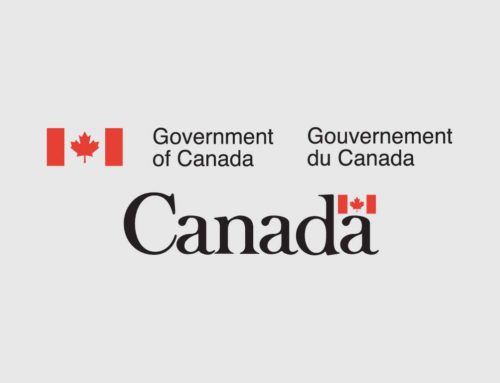We’ve all received email ads for websites that can help us find our credit score, with monthly updates, for free. It’s little wonder that many Canadians are now fixated on that three-digit number. Surely a good credit score means that you are on the right path to financial security, right?
Unfortunately, no! A high credit score is no guarantee that you will not face financial difficulty, or even bankruptcy, in the future. There are many misunderstandings about what the credit score is, what factors affect it and who it was developed for (hint: it’s not you).
What is a credit score?
Credit scores are a product developed by credit bureaus to sell to banks and other lenders as well as insurance companies. They are portrayed as a “measure of trust” – that is, a higher credit score provides lenders with more confidence that you will pay them back. Lenders are primarily interested in maximizing their profitability, which depends on you carrying balances and paying interest as well as paying them back. What’s in their best interest is not necessarily what’s in yours.
The credit bureaus access data from your financial institutions and phone and utility companies. They then apply their algorithms to come up with a three-digit score. Credit scores from different credit bureaus can be different, as they weigh the importance of certain factors differently or use different time frames for your credit history.
What factors affect your credit score?
The most important factor that affects your credit score is your repayment history, accounting for 35% of your score. To have a high score, it is important that you make all required payments on time. However, you get no benefit for paying the balance in full or for making extra payments against a debt. Nor are all payments tracked; for example, faithfully paying your rent on time will not improve your credit score.
Your credit utilization (i.e., the ratio of your credit card balance to your credit limit) accounts for 30% of your score. It is meant to track whether you are getting close to “maxing out” your available credit, which will make you a riskier customer for a new lender. It is suggested that you maintain a balance of no more than 30% of your borrowing limit. Credit utilization only applies to “revolving credit,” such as credit cards and lines of credit. It doesn’t apply to instalment loans, such as mortgages or car loans. Perhaps surprisingly, your credit score does not take into account your salary or other sources of income, though this may be considered by lenders when they determine your credit limit.
The credit score rewards those with a longer credit history, which accounts for 15% of your overall score. It considers the age of your oldest account as well as the average age of all your accounts. It also rewards you for having multiple sources of credit, such as credit cards, car loans and mortgages. This credit mix accounts for 10% of your score.
The number of credit enquiries can impact your credit score. These are distinguished between soft enquiries for non-lending purposes (e.g., by you or a potential landlord) versus hard enquiries (e.g., when you are applying for a mortgage or loan). Isolated hard enquiries will not likely raise any red flags. However, if you apply for a lot of credit in a short period of time, lenders may get concerned that you are shopping for loans and potentially getting in over your head. Other factors that may affect your credit score include your personal stability
(e.g., if you move frequently) and your professional stability (e.g., if you change jobs frequently).
It may seem counterintuitive, but paying off your car loan or mortgage or closing an old credit card that you no longer need could have a negative impact on your credit history and credit mix, which may actually reduce your credit score.
These algorithms may result in a scenario where a person who is unemployed, behind on their rent, and has a seven-year car loan that is “underwater” (i.e., the remaining balance on the loan exceeds the current value of the car), but who makes the minimum payments on their credit card every month, could have a higher credit score than someone who has paid off their mortgage years ago and has just one credit card that they pay off in full every month.
How can you improve your credit score?
Once you understand the factors that do and don’t affect your credit score, you can assess whether some of the common suggestions for improving it are in your best interests or in the best interests of the lenders. Obviously, making sure that you make all minimum required payments on all your debts is important to maximize the payment history.
There are several ways that you can keep your utilization rate under the 30% target. You might consider making multiple payments during each month if you have a significant purchase, or if you are approaching the target because of regular charges throughout the month.
Two methods that are often suggested, but should be approached with caution, are to ask for an increase in your credit limit or to take out an instalment loan to pay down the balance on a credit card (which could also have a positive effect on the credit mix factor). Both methods come with the risk of additional borrowing if you are not disciplined about managing your finances. It’s also worth noting that carrying credit card balances of up to 30% of your credit limit means that you will be paying a significant amount of interest each month.
You could improve your credit history by taking out longer loans, but, like many of the other suggestions, this will result in you paying more interest to the banks.
It is important to know your credit score and to check your credit report from each of the credit bureaus annually to ensure that there are no mistakes. Just remember that the credit score was developed by and for lenders, and that it was not designed as a measure of your personal financial health. And those free services with monthly updates? They make money by recommending financial products to consumers, for which they receive a referral fee. Some even have “coaches” to provide personalized tips to improve your credit score and offer product recommendations. So, if you receive a recommendation to get a consolidation loan to pay down your credit card balances, remember that that’s how these services make money. Don’t focus on improving your credit score by making decisions that are in the lenders’ best interest and not your own!
Disclaimer:
BUSINESS MATTERS deals with a number of complex issues in a concise manner; it is recommended that accounting, legal or other appropriate professional advice should be sought before acting upon any of the information contained therein.
Although every reasonable effort has been made to ensure the accuracy of the information contained in this letter, no individual or organization involved in either the preparation or distribution of this letter accepts any contractual, tortious, or any other form of liability for its contents or for any consequences arising from its use.
BUSINESS MATTERS is prepared bimonthly by the Chartered Professional Accountants of Canada for the clients of its members.




